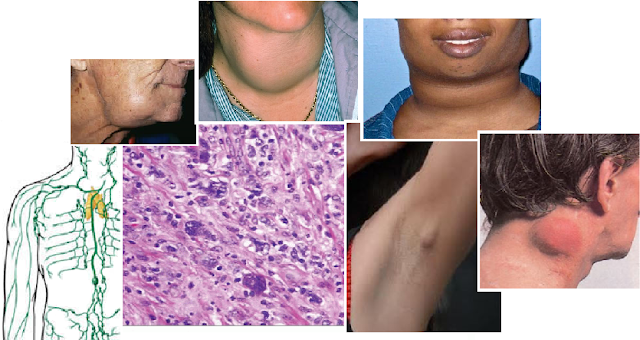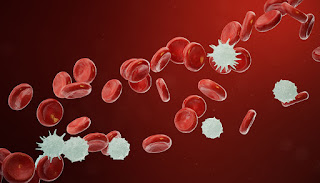What Every Woman Needs to Know About Breast Cancer
Breast cancer is one of the widely covered cancers in media around the world. In fact, most of us have learned about it through advertisements and awareness programs, run by international health organizations, NGOs, and governing bodies, on different communication platforms. But, does everyone know about breast cancer and its risk factors, let aside the available treatments and tests? The answer is "no." These awareness programs have been going on for decades on national and international levels now, but still, there are millions of people around the world who are clueless about the disease, doubtful over the correct measures, surrounded by myths. Many, including the ones who know a little about the disease, still shake their heads in disbelief when told that men can also develop breast cancer. best stomach cancer doctor in Delhi This is perhaps why it is important we all are well- informed on the disease and its treatment, causes, risk factors, and cure.
To learn about breast cancer, we must have an idea of the general anatomy of the breasts. Breasts have milk-producing glands in them; these glands are connected to the skin at nipples through narrow ducts. The tissues around the ducts and glands are typically made up of fat. The rest of the breasts consists of blood vessels, nerves, and lymphatic channels. best cancer doctor in Delhi Lymphatic channels is connected lymph nodes, which are present all across the body and, at an advanced stage of cancer, serve as carriers of malignant cells and cause cancer to spread to the other parts of the body.
When malignant (cancerous, tumor) cells are found in one of the breasts or both, the condition is called breast cancer. Based on the spread of the cancerous cells, a cancer specialist decides upon the stage of cancer. Typically, breast cancer can have 5 stages, namely, Stage 0, Stage 1, Stage 2 (2A, 2B), Stage 3 (3A, 3 B, 3C), and Stage 4. Early-stage or 0 stage cancer is when the disease has not invaded surrounding breast tissues yet and located inside the breast. At stage 1, cancer is less than 2 centimeters in size and partially spread to lymph nodes in the underarms. Stage 2A is when the tumor is less than 2 cm, with 2mm penetration in lymph nodes in the underarm or when it is greater than 2cm in size (and less than 5cm) without any penetration in lymph nodes. Stage 2B is when a tumor in the breast is greater than 5cm or when it greater than 2cm (and less than 5cm), but with penetration in lymph nodes. Stage 3 and above are referred to as advanced stages of breast cancer and in all cases tumors are always greater than 5cm and spread across other parts of the body as well.
In its last stage, which is stage 4, cancer has already spread through the other organs of the body, such as, bones, lungs, liver, and brain. Breast cancer spreads across the other organs of the body through lymph nodes, which are also found in various organs in the body and are interconnected through the lymphatic system.
Annual or biannual mammogram tests can detect cancer in breasts early when it can be cured easily or removed even before it starts to grow inside the breasts. It is, therefore, advised all women get their breasts examined by their doctors regularly, especially women in their thirties and older. Rarely, there is a possible cancer runs in the family in which case genetic testing is required to check whether a family member will develop cancer or not in her lifetime.oral cancer specialist in Delhi That said, it is important to know that not all lumps in breasts are tumors or cause harm, but it is equally important to get them examined by a specialist. In most cases, lumps are not cancerous, but it is difficult to tell what's a tumor and what's not without professional supervision. When one is tested positive, several other tests follow to ascertain the possibility of cancer. One may be asked to take a biopsy test, during which tissues from breasts are examined to tell the possibility of cancer. There are several options for treatment available even when one is found positive. Specialists decide upon the best option based on their investigations and the spread of cancer in the body.
People must not fear to go to their doctor and to get themselves examined for the fear of being tested positive for breast cancer. Tests and examinations do not guarantee the presence of cancer; on the contrary, these often cancel the possibility of cancer. Most of the times people are tested negative. So, one should not fear tests, mammograms, or biopsy tests, get oneself checked and live freely
What is Breast Cancer?
Simply, cancer can be defined as a condition when cells in the body multiply abnormally and do not behave like normal cells. Each cell in our body has a definite life, and when body cells do not complete their life-cycles and do not die in due course, they might multiply infinitesimally and causes the surrounding cells to reflect the same, leading to the formation of an abnormal growth of mass, cancer (or tumor), which might affect the way surrounding organs function and cause life-threatening complications.To learn about breast cancer, we must have an idea of the general anatomy of the breasts. Breasts have milk-producing glands in them; these glands are connected to the skin at nipples through narrow ducts. The tissues around the ducts and glands are typically made up of fat. The rest of the breasts consists of blood vessels, nerves, and lymphatic channels. best cancer doctor in Delhi Lymphatic channels is connected lymph nodes, which are present all across the body and, at an advanced stage of cancer, serve as carriers of malignant cells and cause cancer to spread to the other parts of the body.
When malignant (cancerous, tumor) cells are found in one of the breasts or both, the condition is called breast cancer. Based on the spread of the cancerous cells, a cancer specialist decides upon the stage of cancer. Typically, breast cancer can have 5 stages, namely, Stage 0, Stage 1, Stage 2 (2A, 2B), Stage 3 (3A, 3 B, 3C), and Stage 4. Early-stage or 0 stage cancer is when the disease has not invaded surrounding breast tissues yet and located inside the breast. At stage 1, cancer is less than 2 centimeters in size and partially spread to lymph nodes in the underarms. Stage 2A is when the tumor is less than 2 cm, with 2mm penetration in lymph nodes in the underarm or when it is greater than 2cm in size (and less than 5cm) without any penetration in lymph nodes. Stage 2B is when a tumor in the breast is greater than 5cm or when it greater than 2cm (and less than 5cm), but with penetration in lymph nodes. Stage 3 and above are referred to as advanced stages of breast cancer and in all cases tumors are always greater than 5cm and spread across other parts of the body as well.
In its last stage, which is stage 4, cancer has already spread through the other organs of the body, such as, bones, lungs, liver, and brain. Breast cancer spreads across the other organs of the body through lymph nodes, which are also found in various organs in the body and are interconnected through the lymphatic system.
What Causes Breast Cancer?
So, what is it that causes breast cancer? What are the risk factors? The answer is there are no definite causes of breast cancer as such; the best lung cancer doctor in Delhi the risk factors include advancing age and family history of cancer. Obesity is also one of the risk factors along with regular alcohol use and late marriage. Anyone whose family members have been diagnosed with breast cancer previously is 2-3 times more likely to develop it. Most women develop breast cancer after 50 or menopause.What Reduces Risk?
Researchers have found that regular physical activity and exercise can reduce the risk of breast cancer by half. Exercise can also help overcome the aftermath of the disease and improves the quality of life of people with breast cancer. Poor diet and alcohol consumption are also common risk factors as they are directly linked to obesity. The best way to prevent it is to get the breasts examined regularly by a specialist, especially after 30, and get them checked whenever a lump is found in one of the breasts.Annual or biannual mammogram tests can detect cancer in breasts early when it can be cured easily or removed even before it starts to grow inside the breasts. It is, therefore, advised all women get their breasts examined by their doctors regularly, especially women in their thirties and older. Rarely, there is a possible cancer runs in the family in which case genetic testing is required to check whether a family member will develop cancer or not in her lifetime.oral cancer specialist in Delhi That said, it is important to know that not all lumps in breasts are tumors or cause harm, but it is equally important to get them examined by a specialist. In most cases, lumps are not cancerous, but it is difficult to tell what's a tumor and what's not without professional supervision. When one is tested positive, several other tests follow to ascertain the possibility of cancer. One may be asked to take a biopsy test, during which tissues from breasts are examined to tell the possibility of cancer. There are several options for treatment available even when one is found positive. Specialists decide upon the best option based on their investigations and the spread of cancer in the body.
People must not fear to go to their doctor and to get themselves examined for the fear of being tested positive for breast cancer. Tests and examinations do not guarantee the presence of cancer; on the contrary, these often cancel the possibility of cancer. Most of the times people are tested negative. So, one should not fear tests, mammograms, or biopsy tests, get oneself checked and live freely



Comments
Post a Comment